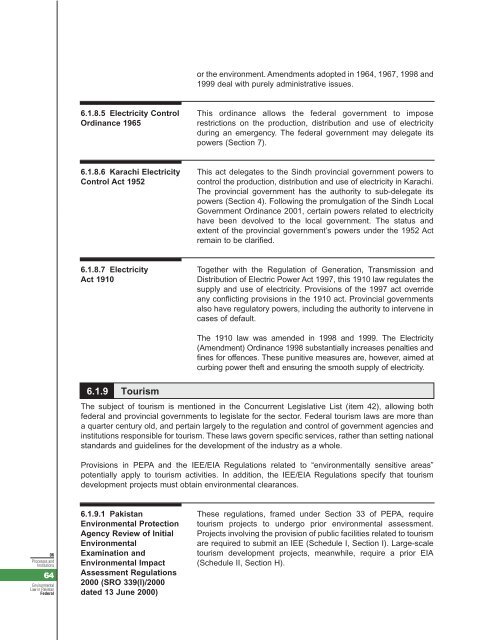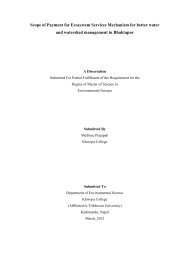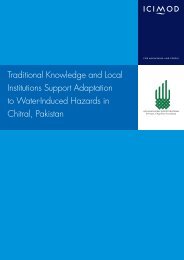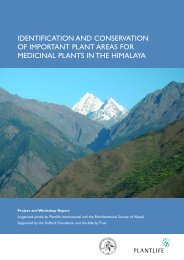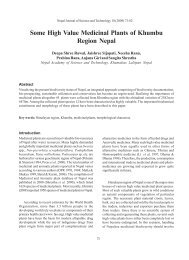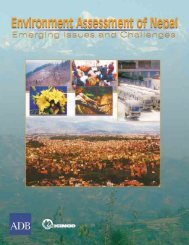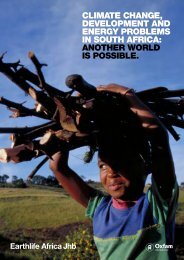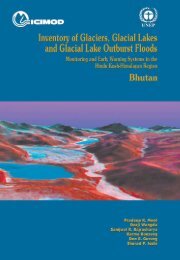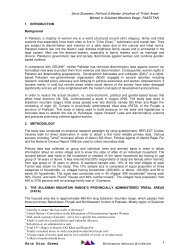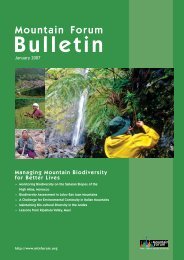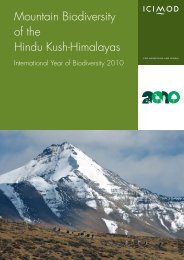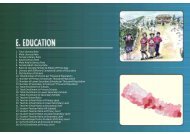Environmental Law in Pakistan - IUCN
Environmental Law in Pakistan - IUCN
Environmental Law in Pakistan - IUCN
You also want an ePaper? Increase the reach of your titles
YUMPU automatically turns print PDFs into web optimized ePapers that Google loves.
or the environment. Amendments adopted <strong>in</strong> 1964, 1967, 1998 and1999 deal with purely adm<strong>in</strong>istrative issues.6.1.8.5 Electricity ControlOrd<strong>in</strong>ance 1965This ord<strong>in</strong>ance allows the federal government to imposerestrictions on the production, distribution and use of electricitydur<strong>in</strong>g an emergency. The federal government may delegate itspowers (Section 7).6.1.8.6 Karachi ElectricityControl Act 1952This act delegates to the S<strong>in</strong>dh prov<strong>in</strong>cial government powers tocontrol the production, distribution and use of electricity <strong>in</strong> Karachi.The prov<strong>in</strong>cial government has the authority to sub-delegate itspowers (Section 4). Follow<strong>in</strong>g the promulgation of the S<strong>in</strong>dh LocalGovernment Ord<strong>in</strong>ance 2001, certa<strong>in</strong> powers related to electricityhave been devolved to the local government. The status andextent of the prov<strong>in</strong>cial government’s powers under the 1952 Actrema<strong>in</strong> to be clarified.6.1.8.7 ElectricityAct 1910Together with the Regulation of Generation, Transmission andDistribution of Electric Power Act 1997, this 1910 law regulates thesupply and use of electricity. Provisions of the 1997 act overrideany conflict<strong>in</strong>g provisions <strong>in</strong> the 1910 act. Prov<strong>in</strong>cial governmentsalso have regulatory powers, <strong>in</strong>clud<strong>in</strong>g the authority to <strong>in</strong>tervene <strong>in</strong>cases of default.The 1910 law was amended <strong>in</strong> 1998 and 1999. The Electricity(Amendment) Ord<strong>in</strong>ance 1998 substantially <strong>in</strong>creases penalties andf<strong>in</strong>es for offences. These punitive measures are, however, aimed atcurb<strong>in</strong>g power theft and ensur<strong>in</strong>g the smooth supply of electricity.6.1.9 TourismThe subject of tourism is mentioned <strong>in</strong> the Concurrent Legislative List (item 42), allow<strong>in</strong>g bothfederal and prov<strong>in</strong>cial governments to legislate for the sector. Federal tourism laws are more thana quarter century old, and perta<strong>in</strong> largely to the regulation and control of government agencies and<strong>in</strong>stitutions responsible for tourism. These laws govern specific services, rather than sett<strong>in</strong>g nationalstandards and guidel<strong>in</strong>es for the development of the <strong>in</strong>dustry as a whole.Provisions <strong>in</strong> PEPA and the IEE/EIA Regulations related to “environmentally sensitive areas”potentially apply to tourism activities. In addition, the IEE/EIA Regulations specify that tourismdevelopment projects must obta<strong>in</strong> environmental clearances.06Processes andInstitutions64<strong>Environmental</strong><strong>Law</strong> <strong>in</strong> <strong>Pakistan</strong>Federal6.1.9.1 <strong>Pakistan</strong><strong>Environmental</strong> ProtectionAgency Review of Initial<strong>Environmental</strong>Exam<strong>in</strong>ation and<strong>Environmental</strong> ImpactAssessment Regulations2000 (SRO 339(I)/2000dated 13 June 2000)These regulations, framed under Section 33 of PEPA, requiretourism projects to undergo prior environmental assessment.Projects <strong>in</strong>volv<strong>in</strong>g the provision of public facilities related to tourismare required to submit an IEE (Schedule I, Section I). Large-scaletourism development projects, meanwhile, require a prior EIA(Schedule II, Section H).


